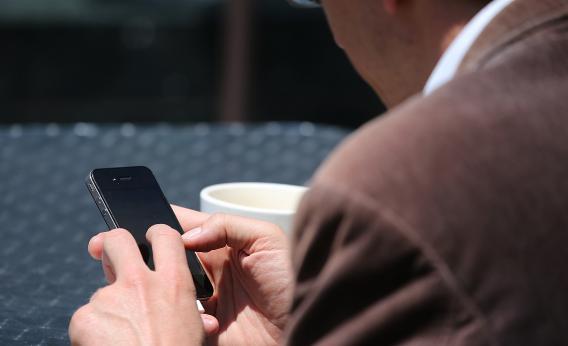Do you find it impossible to resist the siren’s call of your smartphone? Do you find that the gaze of the glowing screen saps all your attention away from the world? Do you wish there were an app for this intractable problem? Well, you’re in luck! The recently released iPhone app (with Android version coming soon) “Pause” promises, according to its slogan, to help users: “Pause the digital. Start the real.”
Using Pause is pretty simple. Open up the app, set a timer, choose an activity you’re going to do, and then activate the smartphone’s airplane mode, which shuts down signal reception.
The real story here, though, are the underlying assumptions that make something like Pause and other apps like it a possibility in the first place.
Unlike the similar program “Freedom,” which shuts down the Internet connection on your computer for a designated period of time, Pause sets itself up as more than just a productivity booster. As the app’s description puts it, “Addiction to digital media is a growing problem. The goal of Pause is to help users reduce their reliance on digital devices by providing a way to track progress and introduce goals of reducing digital addiction and create meaningful interaction in our lives beyond the digital realm.”
Pause exemplifies an unfortunate trend in how technologists and op-ed writers alike think about the ways people interact with digital technologies. Not only do we suffer a purported smartphone or Internet addiction, the thinking goes, but there is also, somehow, a “digital” world of bits that exists separately from the “physical” or “real” world of atoms—the more we use technologies like smartphones and social media, the more we lose touch with reality.
First off, the idea of “Internet addiction” or “smartphone addiction” is problematic. The neuropsychologist (and occasional Slate contributor) Vaughan Bell, in summarizing a study of his, explains, “‘Internet addiction’ doesn’t exist. It can’t, because it’s a logical impossibility, a category error, and there’s no good evidence that heavy internet use, in itself, is a risk to mental health.” Using the catch-all term of addiction is a quick and dirty way of marginalizing people, selling them self-help seminars, books, and expensive rehab clinics, and, ultimately, ignoring those who actually do need help with a real addiction.
Pause also further contributes to a “digital dualism” mindset where the virtual world and the real world are seen as two separate places and our devices act like a portal between them. For a graphic representation, just think of the creepy scene in the classic film Videodrome in which a beautiful woman on television seduces a guy who’s watching and then literally sucks him into the screen.
What digital dualists ignore is how our world is augmented by digital technologies, not replaced or superseded by them. Pause claims to make it possible for people to finally be able to “read a book, cook a meal, talk with your friends—disconnect from the digital to reconnect to the real.” But can’t I read a thrilling novel or informative article on my smartphone? Can’t I use a handy recipe app to give me tips and instructions for cooking a delicious meal? As sociologist Zeynep Tufekci exclaims, we should really just calm down and take a “look at the extensive amount of data that show that social-media users are having more conversations with people—online and off!”
Of course, there are times when smartphones can be distractions or using them can be rude. And some people may have trouble putting them away when it’s appropriate or necessary. But the point here is that stashing away my smartphone or activating Pause doesn’t necessarily mean that I’m engaging more with the “real” world, because none of it was “unreal” to begin with.
